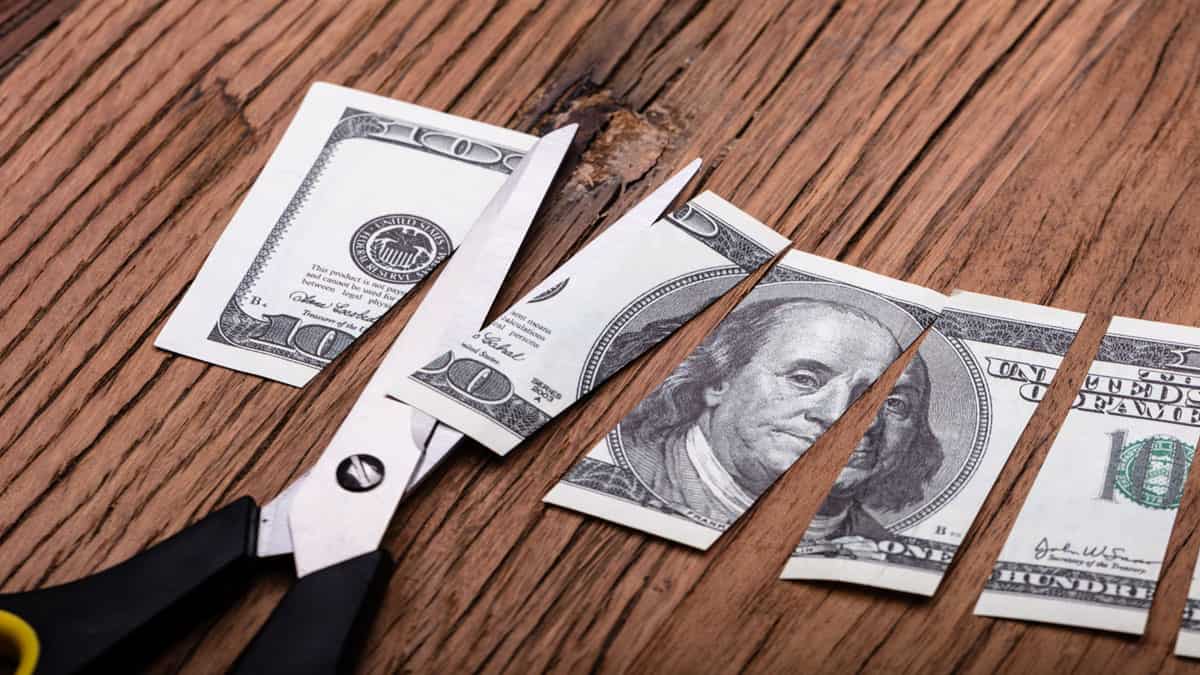THIS POST MAY CONTAIN AFFILIATE LINKS. PLEASE SEE MY DISCLOSURES. FOR MORE INFORMATION.
Saving money is a concept that everybody would love to grasp, but the reality is that it’s truly easier said than done. With inflation raging in the United States, there’s a lot of pessimism when it comes to the thought of saving.
Don’t worry, though, not all hope is lost.
Luckily, there are plenty of easy-to-implement tips and rules to ensure that you’re being financially responsible.
Taking just a few of these rules to heart will translate into plenty of extra dollars in your pocket.
1. Understand Needs Versus Wants

One of the harshest life lessons a person can learn is the difference between a need and a want – and according to many people, the best way to save money is to fully grasp this concept.
It comes down to prioritization and giving a good, hard look at what you’re about to purchase. “If you don’t already have it, do you really need it?” wondered one woman.
2. Cook at Home

The numbers don’t lie: one of the very best financial wellness rules to live by is to simply prepare more of your meals at home. ”
You save so much compared to restaurants and the pre-made stuff people usually buy,” one saver advised. “Also, cooking is fun.” Nothing beats a delicious home-cooked meal if you ask us.
Related: Here is how to spend less money on groceries
3. Don’t Save, Invest

While habitually putting a small percentage of your weekly paycheck into a savings account is a smart move, you can be even smarter.
Countless people suggested investing your money as opposed to simply plopping it down into a savings account where it will accrue a shockingly small amount of interest.
Of course, investing itself is a long-term play – but nine times out of ten, you’ll be glad you invested in the market if enough time passes. And it’s not hard to get started. Just learn a few investing basics and you can put the rest on autopilot.
4. Cancel Unneeded Subscriptions

We have a ton of streaming subscriptions that we are too lazy to cancel, and we’re sure you do, too. People are near-unanimous in advising you to take a look at your subscriptions and cancel the ones you don’t watch as much.
Even though each service is only a few dollars a month, trust us: it all adds up.
In fact, we’re willing to be that you won’t even miss the services you cut out of your life!
Related: Easily cancel subscriptions and negotiate your bills using Rocket Money
5. Don’t Spend Money You Don’t Have

This particular rule seems simple enough: stop spending money you don’t have, which essentially means cutting out all forms of credit as a way to secure your financial wellness.
If you can’t dip into a line of credit, it’s impossible for your credit to go bad. “It is also known by another name: live below your means,” said one man. Words to live by, indeed.
6. Seek Out Inexpensive Alternatives

With most products and services, there is almost always a cheaper alternative. Whether it’s off-brand items at big box stores, homemade cleaning products, or last year’s popular cell phone instead of the new and improved version, you’ll always have options.
For many people, this is an easy way to save money simply because they realize they already seek out inexpensive alternatives!
7. Never Pay Full Price

With countless sales on the vast majority of items available to purchase, why would you ever pay full price? A small amount of time dedicated to researching a great deal will go a long way.
You can even try a different route, as suggested by one savvy shopper: “My habit is always using a cashback site to save money when buying online,” she admitted.
Related: Here are the best ways to save money shopping online
8. Practice Delayed Gratification

Whenever you’re mulling over any kind of purchase – big or small – many advise waiting a few days. If you still want that item after that self-imposed waiting period, go for it – but you’d be surprised how often you wind up not going through with the purchase!
This is especially effective for big-ticket items, as someone pointed out: “That way, you can think things through and decide if you really want that bike or car,” they suggested.
9. Spend Less Than You Make

While this rule of thumb seems obvious to many people, you’d be surprised how many people don’t follow it! If you’re making $3,000 each month, make sure you don’t spend more than that – it’s that simple.
To make it even easier, many people advised only paying with cash, as the tangible feeling of money leaving your hands made people more wary about mindlessly spending it.
“Using cash only helped me save a lot,” one person admitted.
Related: Here are the benefits of a cash only lifestyle
10. Buy Secondhand Before Buying Brand New

Places like garage sales, estate sales, and websites like Facebook Marketplace, OfferUp, and Craigslist can be invaluable resources to you and can make the difference between an expensive purchase of a necessity and a bargain!
“When I moved, I got almost all my furniture and kitchenware this way, and it saved a ton,” one man revealed.
“People are always getting rid of stuff that’s still in good condition, and you probably won’t notice the difference once you have it. It’s also way better for the environment.”
11. Learn To Save First

One of the simplest things you can do to get ahead is to save money before you spend anything
The easiest way to do this is to open a savings account and then set up an automatic transfer every time you get paid.
It doesn’t matter if you save $5 or $100, the point is to create the habit of saving money.
12. Follow The 50-30-20 Rule

The 50-30-20 rule is a basic budgeting plan than has 50% of your money going towards essentials, like food, housing, insurance, etc.
30% of you income should go towards discretionary spending, or wants. The remaining 20% is for saving and debt repayment.
Many people love this budget because it frees them from having to track everything they spend money on. Simply place it into a bucket and you are done.
13. Stay Home On The Weekends

We spend the most money on the weekends. Whether we are bored and looking for something to do, or have the time to go shopping, this is when most of us get into trouble.
A simple trick is to pick a weekend a month and not spend any money. If you can do this, you will see a positive change on your finances.
Related: Check out these fun money free weekend ideas
This thread inspired this post.
More From Money Smart Guides

Nowadays, people are looking for every means possible to make extra cash. One unique idea is to get free gift cards. Gift cards are a great way to help pay for the things you need without spending any money.
You can earn free gift cards for completing simple tasks in many ways. This includes getting paid for simple online tasks like playing games, completing surveys, and shopping.
Here is a complete guide on how to get free gift cards so you can spend less money on the things you buy.
Fun Money Saving Challenges

Do you find it boring to save money?
If you are motivation by turning things into a game, check out these money saving challenges. There is a game for you that will make saving fun and exciting so that you make it a priority to save money.
49 FUN MONEY SAVING CHALLENGES
Slash Your Monthly Bills

With inflation rising, your monthly bills are likely getting out of control. Luckily, there are some simple steps you can take. Use this guide to help you save up to $7,000 a year on your monthly bills.
SLASH YOUR MONTHLY BILLS AND SAVE
21 Tricks Advertisers Use To Get You To Spend Money

When it comes to spending, we all like to think that we are in control. The truth is, advertisers know exactly how to get us to spend more than we intended. By understanding their tactics, you can be better prepared to resist them and keep your hard-earned dollars in your wallet.
21 TRICKS ADVERTISERS USE TO GET YOU TO SPEND MONEY
How To Have FU Money

Do you want to have more money than you know what to do with? This is FU money.
And while it might seem impossible to attain, you can get it with the right plan.
LEARN WHAT FU MONEY AND HOW TO HAVE IT
I have over 15 years experience in the financial services industry and 20 years investing in the stock market. I have both my undergrad and graduate degrees in Finance, and am FINRA Series 65 licensed and have a Certificate in Financial Planning.
Visit my About Me page to learn more about me and why I am your trusted personal finance expert.

